Profiles of 2024-2025 CRS Fellows
Emily Arasim-Beltrán
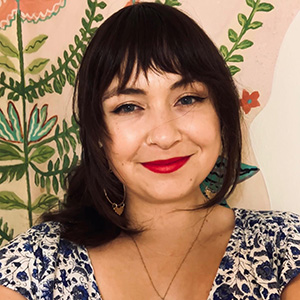 Emily Arasim-Beltrán is a farmer, educator, and organizer from Northern New Mexico, pursuing a Master's Degree in Community and Regional Planning. She is dedicated to working alongside her communities to build solutions that address the interconnected challenges of rural economic (in)equity; food (in)justice and community health; climate change impacts; and protection of agricultural land and farming traditions. Within this framework, her masters professional project explores the landscape of the historic local grocery stores that have served as critical sources of community connection, health and economic life in rural New Mexico; the processes that have led many to be abandoned and dis-invested; and pathways for community-led protection and revitalization. Outside of the University, Emily serves as the Farms, Food and Seeds Program Coordinator for the New Mexico Acequia Association, where she has worked in various capacities since 2018. She has previously worked for organizations including the Environmental and Economic Justice Leadership Team of Valle de Oro National Wildlife Refuge, the Northern Youth Project, Communities for Clean Water, Acequia Madre de Tesuque Commission, and the Women’s Earth and Climate Action Network.
Emily Arasim-Beltrán is a farmer, educator, and organizer from Northern New Mexico, pursuing a Master's Degree in Community and Regional Planning. She is dedicated to working alongside her communities to build solutions that address the interconnected challenges of rural economic (in)equity; food (in)justice and community health; climate change impacts; and protection of agricultural land and farming traditions. Within this framework, her masters professional project explores the landscape of the historic local grocery stores that have served as critical sources of community connection, health and economic life in rural New Mexico; the processes that have led many to be abandoned and dis-invested; and pathways for community-led protection and revitalization. Outside of the University, Emily serves as the Farms, Food and Seeds Program Coordinator for the New Mexico Acequia Association, where she has worked in various capacities since 2018. She has previously worked for organizations including the Environmental and Economic Justice Leadership Team of Valle de Oro National Wildlife Refuge, the Northern Youth Project, Communities for Clean Water, Acequia Madre de Tesuque Commission, and the Women’s Earth and Climate Action Network.
Robin Babb
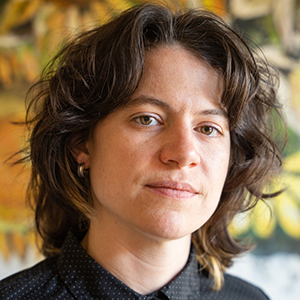 Robin Babb is a second-year student in the Creative Writing MFA program at UNM. She is currently the associate editor at edible New Mexico, and she has previously worked as an editor at the (now defunct) alt-weekly paper The Weekly Alibi and at El Palacio: Art, History & Culture of New Mexico. Her work has been published in Phoebe Journal, New Mexico Magazine, and Southwest Contemporary, and is forthcoming in the Kenyon Review. She was recently awarded a 2024 New Mexico Writers Annual Grant. Robin’s writing revolves around literature and pop culture, as well as the agriculture and ecology of the desert Southwest. Currently she is researching the Mexican gray wolf recovery project, much of which is taking place in Southern New Mexico. She lives in Albuquerque, New Mexico.
Robin Babb is a second-year student in the Creative Writing MFA program at UNM. She is currently the associate editor at edible New Mexico, and she has previously worked as an editor at the (now defunct) alt-weekly paper The Weekly Alibi and at El Palacio: Art, History & Culture of New Mexico. Her work has been published in Phoebe Journal, New Mexico Magazine, and Southwest Contemporary, and is forthcoming in the Kenyon Review. She was recently awarded a 2024 New Mexico Writers Annual Grant. Robin’s writing revolves around literature and pop culture, as well as the agriculture and ecology of the desert Southwest. Currently she is researching the Mexican gray wolf recovery project, much of which is taking place in Southern New Mexico. She lives in Albuquerque, New Mexico.
Susana Echeverri Herrera
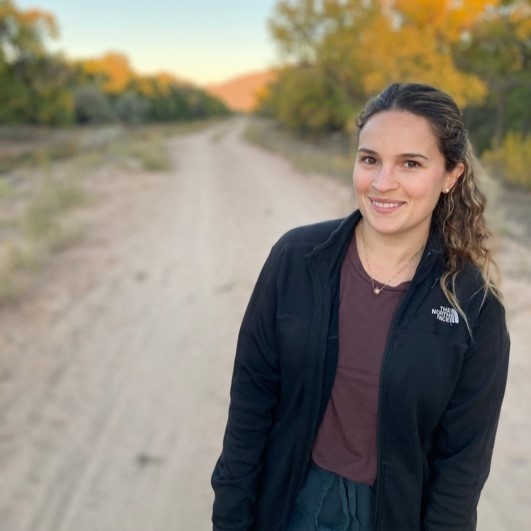 Susana Echeverri Herrera is a Ph.D. student in the Department of Sociology. She originally trained as a dentist and completed a residency in periodontics at Pontificia Universidad Javeriana in Bogotá, Colombia, her hometown. Driven by a deep commitment to social justice and a passion for addressing health inequalities, she pursued further studies in the United States, where she earned a Master of Public Health from Rutgers University in 2021 and an M.A. in Sociology from the University of New Mexico in 2023.
Susana Echeverri Herrera is a Ph.D. student in the Department of Sociology. She originally trained as a dentist and completed a residency in periodontics at Pontificia Universidad Javeriana in Bogotá, Colombia, her hometown. Driven by a deep commitment to social justice and a passion for addressing health inequalities, she pursued further studies in the United States, where she earned a Master of Public Health from Rutgers University in 2021 and an M.A. in Sociology from the University of New Mexico in 2023.
Susana grounds her research in critical border theory and disability justice, focusing on the intersection of immigration and health. Her ethnographic observations and interviews highlight the experiences of Latina immigrants diagnosed with breast cancer. Through her research, Susana reveals how U.S. borders fundamentally disable immigrants by perpetuating violence, exclusion, and disenfranchisement. These conditions contribute to adverse health outcomes and reinforce systemic inequalities that disproportionately affect immigrant communities.
Adrianna Fragozo
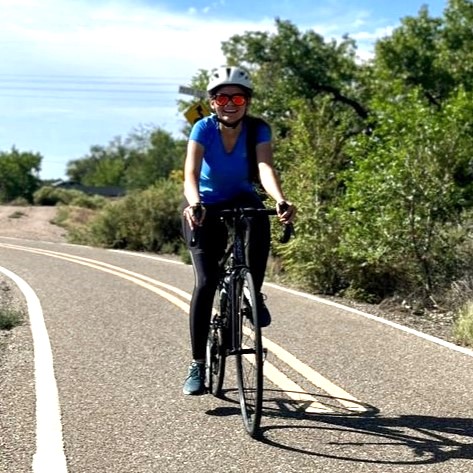
Adrianna Fragozo is a Transportation Planner pursuing an M.Sc. in Transportation and Traffic Engineering. She was born and raised in Colombia, where her past experiences living in different community sizes have led her to engage in public transportation planning and the critical role of transportation in shaping the quality of life, especially for those in disadvantaged situations. Her current research focuses on understanding the cultural, sociodemographic, and perceptual factors that influence the adoption and use of new transit technologies in New Mexico, such as microtransit. It will help prioritize innovative transit solutions that cater to the diverse cultural dynamics of the region. The results will enable the identification of critical policy points that can facilitate the successful implementation of transit technologies in the state, thereby serving as a useful tool for policymakers and transit agencies for decision-making. She also aims to uncover insights that can inform strategies to enhance user education and awareness, ultimately contributing to the viability and sustainability of innovative transit solutions in New Mexico.
Josh Heckman-Archibeque
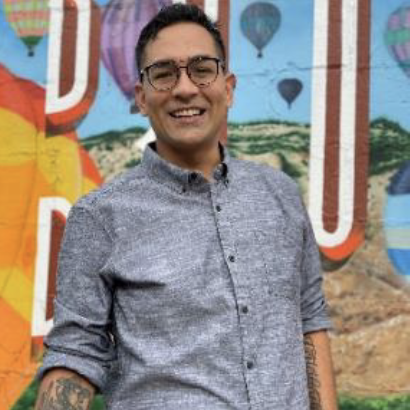 Josh Heckman-Archibeque is a Ph.D. candidate in American studies and a fellow at the Center for Southwest Research. Josh’s research focuses on the production and reproduction of working-class social relations in New Mexico. Josh was a TA/GA for four years in American Studies. They are currently teaching at CNM and was a substitute teacher with APS working at various schools like Rio Grande Highschool, Atrisco Heritage Academy, and Jimmy Carter Middle school. Josh is an experienced community activist and union organizer who has worked with organizations such as MEChA de UNM and The Red Nation. They have organized community self-defense classes through Shifting Sands Dojo for People of Color, Working folks, and the LGBTQ+ Community. Josh is a teacher, worker, martial artist, and community member.
Josh Heckman-Archibeque is a Ph.D. candidate in American studies and a fellow at the Center for Southwest Research. Josh’s research focuses on the production and reproduction of working-class social relations in New Mexico. Josh was a TA/GA for four years in American Studies. They are currently teaching at CNM and was a substitute teacher with APS working at various schools like Rio Grande Highschool, Atrisco Heritage Academy, and Jimmy Carter Middle school. Josh is an experienced community activist and union organizer who has worked with organizations such as MEChA de UNM and The Red Nation. They have organized community self-defense classes through Shifting Sands Dojo for People of Color, Working folks, and the LGBTQ+ Community. Josh is a teacher, worker, martial artist, and community member.
Jessica Lanham
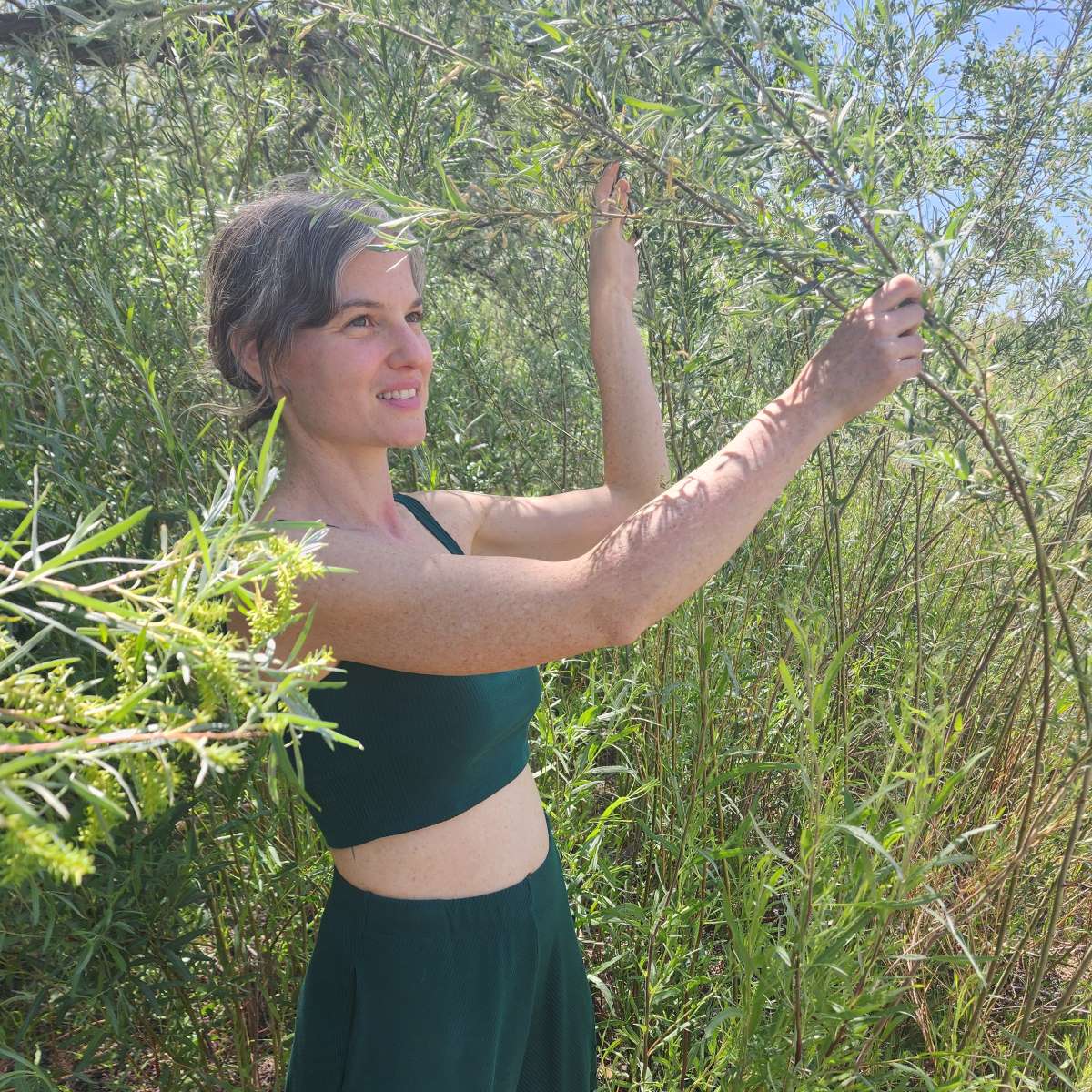 Jess is an interdisciplinary artist and designer in her final year of the MFA program at the University of New Mexico. Her art and research focus on the Las Vegas area where she grew up, and the Hermit’s Peak/Calf Canyon fire. She’s fascinated by the intertwined complexities of the fire's impact on our notion of home. Her work includes rubbings from scorched trees, watercolor and wildfire ash paintings, and video projections showcasing quiet moments from the burn scar. Using diffraction, refraction, and the parallax effects of light, she creates shifting versions of the same moment in time. She has exhibited her work in Wales, UK, California, and New Mexico and was a selected artist for Art Chicago. She earned a BFA from the School of the Art Institute of Chicago (SAIC) and currently resides in Albuquerque, New Mexico.
Jess is an interdisciplinary artist and designer in her final year of the MFA program at the University of New Mexico. Her art and research focus on the Las Vegas area where she grew up, and the Hermit’s Peak/Calf Canyon fire. She’s fascinated by the intertwined complexities of the fire's impact on our notion of home. Her work includes rubbings from scorched trees, watercolor and wildfire ash paintings, and video projections showcasing quiet moments from the burn scar. Using diffraction, refraction, and the parallax effects of light, she creates shifting versions of the same moment in time. She has exhibited her work in Wales, UK, California, and New Mexico and was a selected artist for Art Chicago. She earned a BFA from the School of the Art Institute of Chicago (SAIC) and currently resides in Albuquerque, New Mexico.
Alejandra Lemus
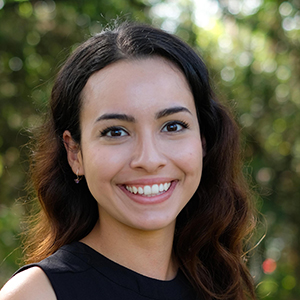 Alejandra Lemus is a Ph.D. candidate in the Sociology Department, with a concentration in medical sociology and the sociology of race and ethnicity. She received her M.A. in Sociology in 2020 and B.S. in Applied Sociology in 2017 from Texas State University- San Marcos. She has previously worked as a case worker for a non-profit organization which connects migrant families to healthcare resources and assists with continuity of care. Her dissertation research uses qualitative interviews to explore how interdependent communities, or "care webs", of Latina immigrants in the US and the people they care for navigate global systems of oppression. Through this work, she aims to bring to light the lived experiences of Latinas and their communities to understand how inequitable racialized-gendered systems affect access to care, transnational caregiving practices, and shape care labor.
Alejandra Lemus is a Ph.D. candidate in the Sociology Department, with a concentration in medical sociology and the sociology of race and ethnicity. She received her M.A. in Sociology in 2020 and B.S. in Applied Sociology in 2017 from Texas State University- San Marcos. She has previously worked as a case worker for a non-profit organization which connects migrant families to healthcare resources and assists with continuity of care. Her dissertation research uses qualitative interviews to explore how interdependent communities, or "care webs", of Latina immigrants in the US and the people they care for navigate global systems of oppression. Through this work, she aims to bring to light the lived experiences of Latinas and their communities to understand how inequitable racialized-gendered systems affect access to care, transnational caregiving practices, and shape care labor.
Ramona Malczynski
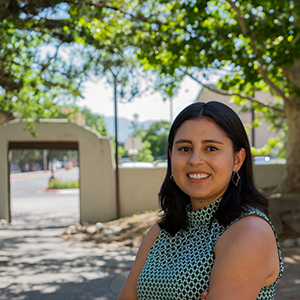 Ramona Malczynski is a PhD candidate in Geography and Environmental Studies. She was born and raised in Albuquerque and throughout her academic career became increasingly interested in the processes that shape the place she loves. She is currently engaged in community organizing around many issues including environmental and urban policy. Her experiences helped define her dissertation research on the environmental history of Albuquerque in the second half of the 20th century with a focus on the relationship between humans and concrete. This research aims to provide information for community organizers in Albuquerque about which actors have had more power in defining the urban environment, what the impacts and benefits of these decisions have been and how they have been distributed among residents, as well as how Albuquerque residents engage with the built and non-human urban environment. Before returning home for her PhD, Ramona completed her BS in Earth Systems at Stanford University and her MPhil through the European Master’s in System Dynamics Programme.
Ramona Malczynski is a PhD candidate in Geography and Environmental Studies. She was born and raised in Albuquerque and throughout her academic career became increasingly interested in the processes that shape the place she loves. She is currently engaged in community organizing around many issues including environmental and urban policy. Her experiences helped define her dissertation research on the environmental history of Albuquerque in the second half of the 20th century with a focus on the relationship between humans and concrete. This research aims to provide information for community organizers in Albuquerque about which actors have had more power in defining the urban environment, what the impacts and benefits of these decisions have been and how they have been distributed among residents, as well as how Albuquerque residents engage with the built and non-human urban environment. Before returning home for her PhD, Ramona completed her BS in Earth Systems at Stanford University and her MPhil through the European Master’s in System Dynamics Programme.
Marsella Pérez Macias
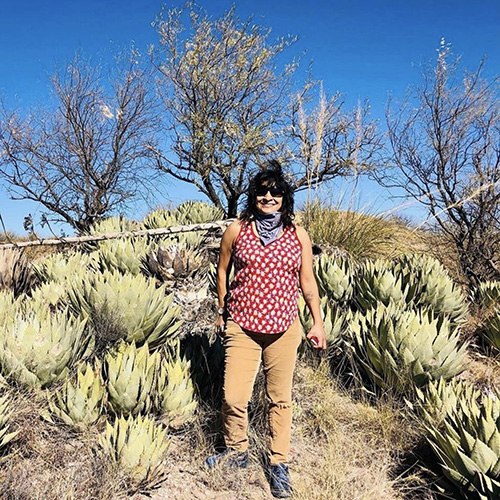 Marsella is a graduate student in Latin American Studies, concentrating in Environmental Governance & Resilience. In 2021 she retired from her twenty-plus year career in the food and beverage industry where she specialized in agave distillates. Since 2012 Marsella has explored México’s mezcal-producing regions, covering remote areas in Jalisco, Michoacán, Oaxaca, Puebla, Sonora, and Zacatecas. Her acquired knowledge enabled her to fulfill roles including bar director, bartender, curator, cultural educator, brand ambassador, and sales representative in the San Francisco Bay Area. Marsella’s travels illuminated the integral roles of agave and mezcal in Mexican culture, yet both were being transformed into global commodities. Witnessing the mezcal boom, her decision to pivot to academia strengthened as she observed producers experience negative ecological impacts to their lands while being continually shut out of regulatory production decisions. Marsella’s research focuses on bacanora, a type of mezcal produced in the northern state of Sonora, and examines communities’ cultural, ecological, and socio-economic impacts imposed by Denomination of Origin (DO) certification policies. Her aim is to comprehend current and future producer needs along with natural resource accessibility to help envision sustainable regulatory bacanora production policies.
Marsella is a graduate student in Latin American Studies, concentrating in Environmental Governance & Resilience. In 2021 she retired from her twenty-plus year career in the food and beverage industry where she specialized in agave distillates. Since 2012 Marsella has explored México’s mezcal-producing regions, covering remote areas in Jalisco, Michoacán, Oaxaca, Puebla, Sonora, and Zacatecas. Her acquired knowledge enabled her to fulfill roles including bar director, bartender, curator, cultural educator, brand ambassador, and sales representative in the San Francisco Bay Area. Marsella’s travels illuminated the integral roles of agave and mezcal in Mexican culture, yet both were being transformed into global commodities. Witnessing the mezcal boom, her decision to pivot to academia strengthened as she observed producers experience negative ecological impacts to their lands while being continually shut out of regulatory production decisions. Marsella’s research focuses on bacanora, a type of mezcal produced in the northern state of Sonora, and examines communities’ cultural, ecological, and socio-economic impacts imposed by Denomination of Origin (DO) certification policies. Her aim is to comprehend current and future producer needs along with natural resource accessibility to help envision sustainable regulatory bacanora production policies.
Alexander Pearl
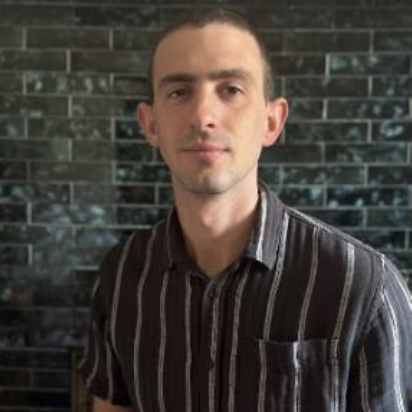 Alex Pearl is a Ph.D. student in American Studies and Graduate Research Fellow at the Center for Regional Studies at the University of New Mexico on unceded and occupied Tewa territory. His intellectual interests emerged from his experiences of working with incarcerated students in state prisons over the last 10 years. His dissertation research centers legal activist Dwight Duran and the eponymously named Duran Consent Decree in the long history of racialized punishment and labor in what is now called “New Mexico.” At UNM, he teaches courses on prisons, schools, radical study, and theories/methods in interdisciplinary fields of inquiry, incorporating food and nourishment as engaged pedagogy.
Alex Pearl is a Ph.D. student in American Studies and Graduate Research Fellow at the Center for Regional Studies at the University of New Mexico on unceded and occupied Tewa territory. His intellectual interests emerged from his experiences of working with incarcerated students in state prisons over the last 10 years. His dissertation research centers legal activist Dwight Duran and the eponymously named Duran Consent Decree in the long history of racialized punishment and labor in what is now called “New Mexico.” At UNM, he teaches courses on prisons, schools, radical study, and theories/methods in interdisciplinary fields of inquiry, incorporating food and nourishment as engaged pedagogy.
Brandy Reeves
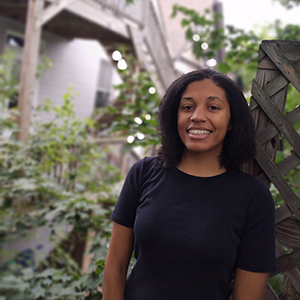 Brandy Reeves is a PhD Candidate in the Department of English. She received her B.A. in English from Salem College and her M.A. from North Carolina State University. She studies 20th and 21st century multiethnic American literature from a critical race, gender and sexuality, and post/de-colonial lens. She came to UNM with the intent to comparatively study representations of motherhood in Chicana/o and Native/Indigenous American literature with African American literature. Her dissertation focuses on motherhood as a racialized and classist concept that negatively categorizes mother characters. Analyzing novels from a diverse grouping of authors, this project asks: what role does region, class, and race/ethnicity play in being negatively categorized as a mother by dominant U.S. society? Through a previous fellowship with the CRS, Brandy looked at Southwestern motherhood and the works of Sandra Cisneros. During this fellowship, this project will examine Anglo-American ideological constructions of motherhood to analyze how its imposition on contemporary African-American, Chicana, and Native American women and mothers.
Brandy Reeves is a PhD Candidate in the Department of English. She received her B.A. in English from Salem College and her M.A. from North Carolina State University. She studies 20th and 21st century multiethnic American literature from a critical race, gender and sexuality, and post/de-colonial lens. She came to UNM with the intent to comparatively study representations of motherhood in Chicana/o and Native/Indigenous American literature with African American literature. Her dissertation focuses on motherhood as a racialized and classist concept that negatively categorizes mother characters. Analyzing novels from a diverse grouping of authors, this project asks: what role does region, class, and race/ethnicity play in being negatively categorized as a mother by dominant U.S. society? Through a previous fellowship with the CRS, Brandy looked at Southwestern motherhood and the works of Sandra Cisneros. During this fellowship, this project will examine Anglo-American ideological constructions of motherhood to analyze how its imposition on contemporary African-American, Chicana, and Native American women and mothers.
Emma Ressel
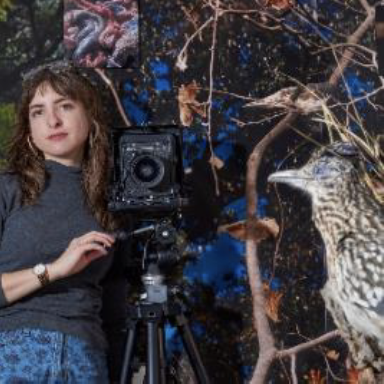 Emma Ressel is an MFA candidate in the Department of Art at the University of New Mexico. She is a visual artist who primarily uses large format photography to make still-life images about decay, consuming, and the intermingling of beauty and the grotesque. Her current photographic research involves inquiries into animal preservation, science processes, and biological decomposition, working with the collection at the Museum of Southwestern Biology (MSB) as a case study. Making still life compositions with specimens at the MSB, she reflects, reinterprets, and visualizes the role of the animals stored in the museum’s stacks to speak to our attempts and failures to draw animals closer, preserve populations, and “save” them. Ressel earned her BA in Photography at Bard College. In 2022 she was awarded the Film Photo Award to support her continued use of large format film, and she is a 2023 Emerging Artist Member at Strata Gallery in Santa Fe.
Emma Ressel is an MFA candidate in the Department of Art at the University of New Mexico. She is a visual artist who primarily uses large format photography to make still-life images about decay, consuming, and the intermingling of beauty and the grotesque. Her current photographic research involves inquiries into animal preservation, science processes, and biological decomposition, working with the collection at the Museum of Southwestern Biology (MSB) as a case study. Making still life compositions with specimens at the MSB, she reflects, reinterprets, and visualizes the role of the animals stored in the museum’s stacks to speak to our attempts and failures to draw animals closer, preserve populations, and “save” them. Ressel earned her BA in Photography at Bard College. In 2022 she was awarded the Film Photo Award to support her continued use of large format film, and she is a 2023 Emerging Artist Member at Strata Gallery in Santa Fe.
Suyént Rodríguez
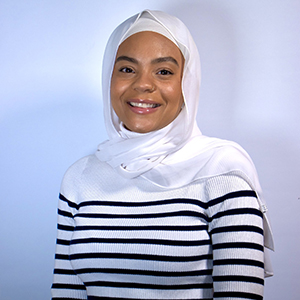 Suyént Rodríguez is a Ph.D. student in the Department of Sociology and Criminology at the University of New Mexico (UNM). She earned a B.A. in Psychology and Africana Studies from UNM and a M.A. in Pan African Studies from Syracuse University. Her research interests include social movements, race and ethnicity, Afrolatinidad, intersectionality, and immigration. Her dissertation project is rooted in scholarship of Black resistance and transnational mobilization. Using Cuba as a site of contestation, she contextualizes external factors and internal movement processes via participant-observations, interviews, and archival research to develop a racialized understanding of transnational mobilization. Through her dissertation project, she aims to add nuance to our understanding of the intersectional dynamics of transnational collective action.
Suyént Rodríguez is a Ph.D. student in the Department of Sociology and Criminology at the University of New Mexico (UNM). She earned a B.A. in Psychology and Africana Studies from UNM and a M.A. in Pan African Studies from Syracuse University. Her research interests include social movements, race and ethnicity, Afrolatinidad, intersectionality, and immigration. Her dissertation project is rooted in scholarship of Black resistance and transnational mobilization. Using Cuba as a site of contestation, she contextualizes external factors and internal movement processes via participant-observations, interviews, and archival research to develop a racialized understanding of transnational mobilization. Through her dissertation project, she aims to add nuance to our understanding of the intersectional dynamics of transnational collective action.
Nahid Samimimotlagh
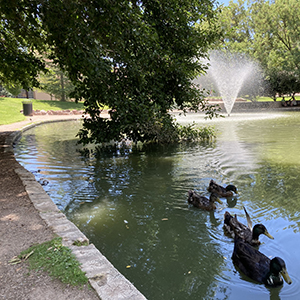 Nahid Samimimotlagh is a dedicated PhD candidate in the Department of Economics at the University of New Mexico, where she focused on the critical areas of water management, energy efficiency, and climate change. Her work explores the intersection of environmental sustainability and economic policy, aiming to develop innovative strategies that address the pressing challenges of our time. Passionate about mitigating the impacts of climate change, Nahid is committed to advancing knowledge and solutions that promote sustainable resource use and resilience in communities. Beyond her academic pursuits, Nahid finds balance and inspiration through hobbies in yoga.
Nahid Samimimotlagh is a dedicated PhD candidate in the Department of Economics at the University of New Mexico, where she focused on the critical areas of water management, energy efficiency, and climate change. Her work explores the intersection of environmental sustainability and economic policy, aiming to develop innovative strategies that address the pressing challenges of our time. Passionate about mitigating the impacts of climate change, Nahid is committed to advancing knowledge and solutions that promote sustainable resource use and resilience in communities. Beyond her academic pursuits, Nahid finds balance and inspiration through hobbies in yoga.
Joseph Scala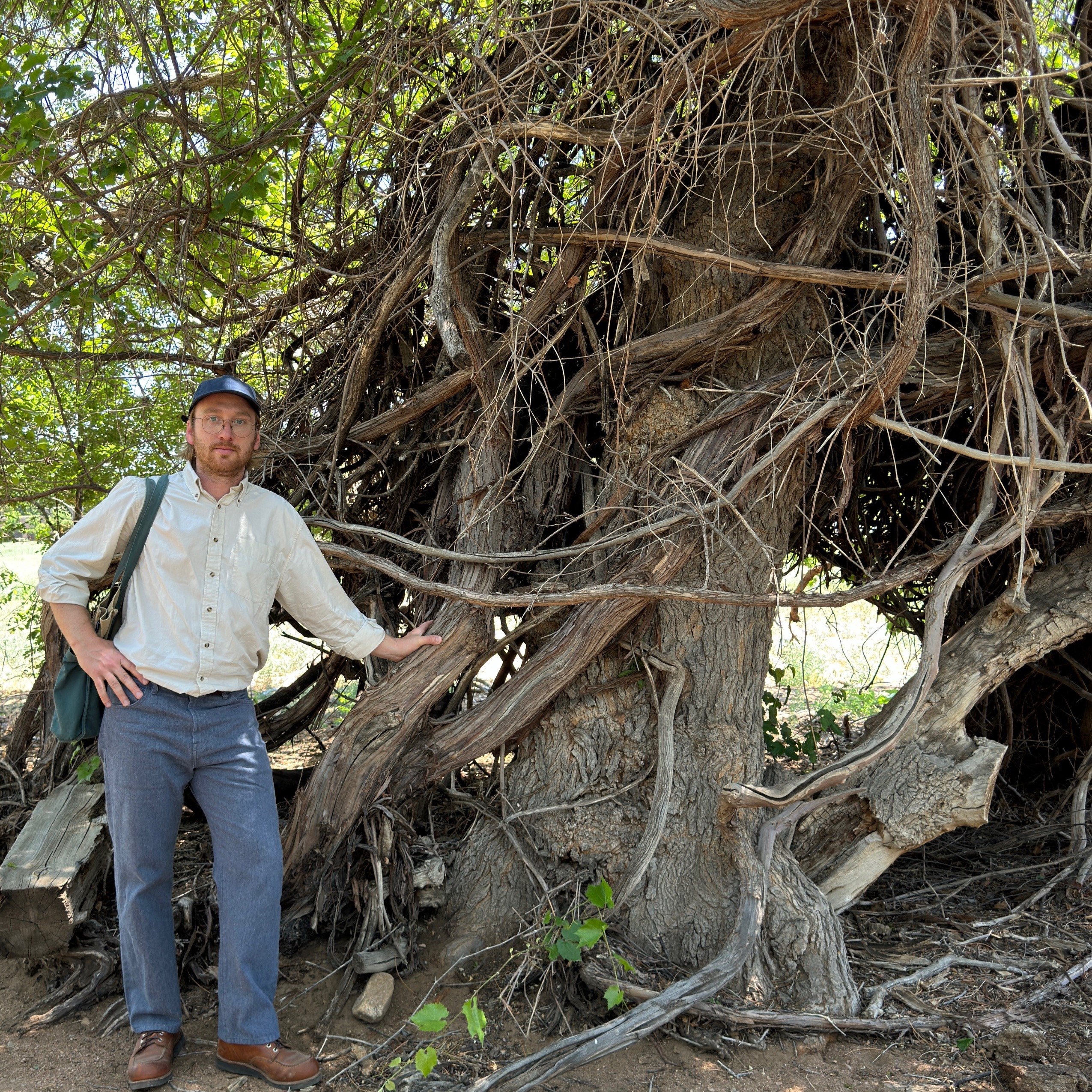
Md Shahinuzzaman
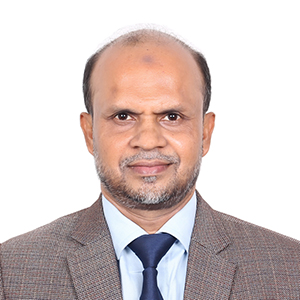 Md Shahinuzzaman’s educational background includes a BSc and MS in psychology from the University of Dhaka, where he graduated at the top of his class and received a gold medal from the President of Bangladesh for academic achievements. Since 2007, Mr. Shahinuzzaman has been teaching in higher education at Jagannath University, progressing from lecturer to associate professor in 2019. He has also served as a student counselor and a trained counselor for Cyclone Sidr victims. His academic portfolio includes 24 peer-reviewed articles the textbook "Experimental Design and Statistics in Psychology, and involvement in five research projects supported by five UGC grants. Currently, Mr. Shahinuzzaman is pursuing PhD in Family and Child Studies (FCS) at the UNM, focusing on early childhood trauma and adolescent mental health. He received a CRS fellowship for researching the Efficacy of Trauma-Informed Care for Early Childhood Special Education Children: A Cross-Cultural Systematic Review.
Md Shahinuzzaman’s educational background includes a BSc and MS in psychology from the University of Dhaka, where he graduated at the top of his class and received a gold medal from the President of Bangladesh for academic achievements. Since 2007, Mr. Shahinuzzaman has been teaching in higher education at Jagannath University, progressing from lecturer to associate professor in 2019. He has also served as a student counselor and a trained counselor for Cyclone Sidr victims. His academic portfolio includes 24 peer-reviewed articles the textbook "Experimental Design and Statistics in Psychology, and involvement in five research projects supported by five UGC grants. Currently, Mr. Shahinuzzaman is pursuing PhD in Family and Child Studies (FCS) at the UNM, focusing on early childhood trauma and adolescent mental health. He received a CRS fellowship for researching the Efficacy of Trauma-Informed Care for Early Childhood Special Education Children: A Cross-Cultural Systematic Review.
Hennessey Star
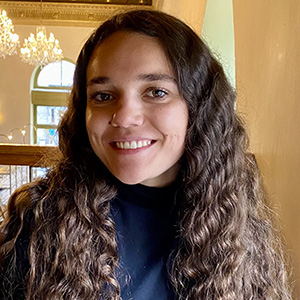 Hennessey Star is a PhD student in American Studies at the University of New Mexico with a BA in Religion, Spirituality, and Society from the University of Puget Sound. Her research is focused on the role of the incarceration of girls and welfare institutions in the Southwest on the continued colonization of the region through the carceral enforcement of white settler femininity, domesticity, and familial values. Hennessey engages in place-based and critical archival research that position the nation-wide, Protestant project of reforming delinquent girls and the construction of girlhood within the specificities of the Southwest region, primarily focusing on the Girls’ Welfare Home in Albuquerque, the House of the Good Shepherd in Mesilla Park, and Lorretta Academy.
Hennessey Star is a PhD student in American Studies at the University of New Mexico with a BA in Religion, Spirituality, and Society from the University of Puget Sound. Her research is focused on the role of the incarceration of girls and welfare institutions in the Southwest on the continued colonization of the region through the carceral enforcement of white settler femininity, domesticity, and familial values. Hennessey engages in place-based and critical archival research that position the nation-wide, Protestant project of reforming delinquent girls and the construction of girlhood within the specificities of the Southwest region, primarily focusing on the Girls’ Welfare Home in Albuquerque, the House of the Good Shepherd in Mesilla Park, and Lorretta Academy.
Cassidy Tawse-Garcia
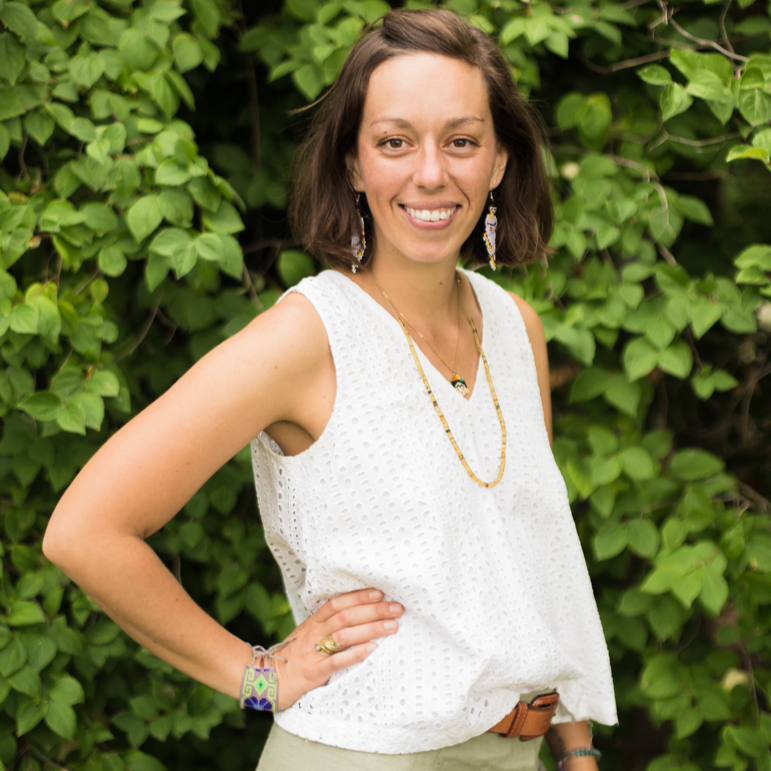 Originally from Colorado, Cassidy holds a BA in Journalism & Political Science from the University of Colorado, and a Masters in Environmental Management from Western Colorado University. She is a PhD Candidate in the Dept. of Geography & Environmental Studies at UNM in Albuquerque. She studies cultural and economic geographies of the US Southwest & Latin America. Her dissertation research explores rural communities’ responses to the 2022 Hermit’s Peak and Calf Canyon Wildfire in Northern NM, which burned nearly 450,000 acres and is that state’s largest wildfire to date. She studies rural community response to climate crises, and the roles of collective care in disaster recovery. Cassidy is engaged with UNM’s El Centro de La Raza, the Transformation Network, a convergence science research initiative, the Community Economies Research Network (CERN), the Transect of the Americas research collaborative, the American Association of Geographers JEDI committee, and UNM’s Robert Mallory Center for Community Geography. She holds a Graduate Teaching Certificate from UNM and is a Faculty Member in Geography at Central New Mexico Community College (CNM). She teaches World Regional Geography & Physical Geography.
Originally from Colorado, Cassidy holds a BA in Journalism & Political Science from the University of Colorado, and a Masters in Environmental Management from Western Colorado University. She is a PhD Candidate in the Dept. of Geography & Environmental Studies at UNM in Albuquerque. She studies cultural and economic geographies of the US Southwest & Latin America. Her dissertation research explores rural communities’ responses to the 2022 Hermit’s Peak and Calf Canyon Wildfire in Northern NM, which burned nearly 450,000 acres and is that state’s largest wildfire to date. She studies rural community response to climate crises, and the roles of collective care in disaster recovery. Cassidy is engaged with UNM’s El Centro de La Raza, the Transformation Network, a convergence science research initiative, the Community Economies Research Network (CERN), the Transect of the Americas research collaborative, the American Association of Geographers JEDI committee, and UNM’s Robert Mallory Center for Community Geography. She holds a Graduate Teaching Certificate from UNM and is a Faculty Member in Geography at Central New Mexico Community College (CNM). She teaches World Regional Geography & Physical Geography.
Natalia M. Toscano
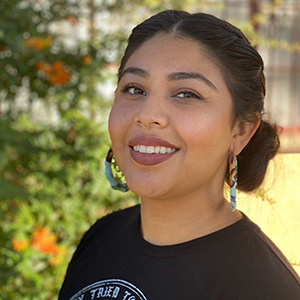 Natalia M. Toscano is a Ph.D. candidate in the inaugural cohort of graduate students in the department of Chicana/o Studies. Natalia is a proud transfer student who attended Santa Monica College and transferred to UCLA, obtaining her bachelor’s degree in Chicana/o Studies and American Indian Studies. Her research explores the transnational relationship between Chicanx and Mexican leftists organizing and struggling against neoliberal projects of resource, land, and labor extraction. Against this backdrop of domination, Natalia’s dissertation study centers how Chicanx communities imagine and enact autonomy. Additionally, Natalia currently serves as a co-editor for the journal Regeneraciòn: A Xicanacimiento Studies Journal, to continue promoting critical scholarship in Chicana/o/x Studies.
Natalia M. Toscano is a Ph.D. candidate in the inaugural cohort of graduate students in the department of Chicana/o Studies. Natalia is a proud transfer student who attended Santa Monica College and transferred to UCLA, obtaining her bachelor’s degree in Chicana/o Studies and American Indian Studies. Her research explores the transnational relationship between Chicanx and Mexican leftists organizing and struggling against neoliberal projects of resource, land, and labor extraction. Against this backdrop of domination, Natalia’s dissertation study centers how Chicanx communities imagine and enact autonomy. Additionally, Natalia currently serves as a co-editor for the journal Regeneraciòn: A Xicanacimiento Studies Journal, to continue promoting critical scholarship in Chicana/o/x Studies.
Cristal Wilson
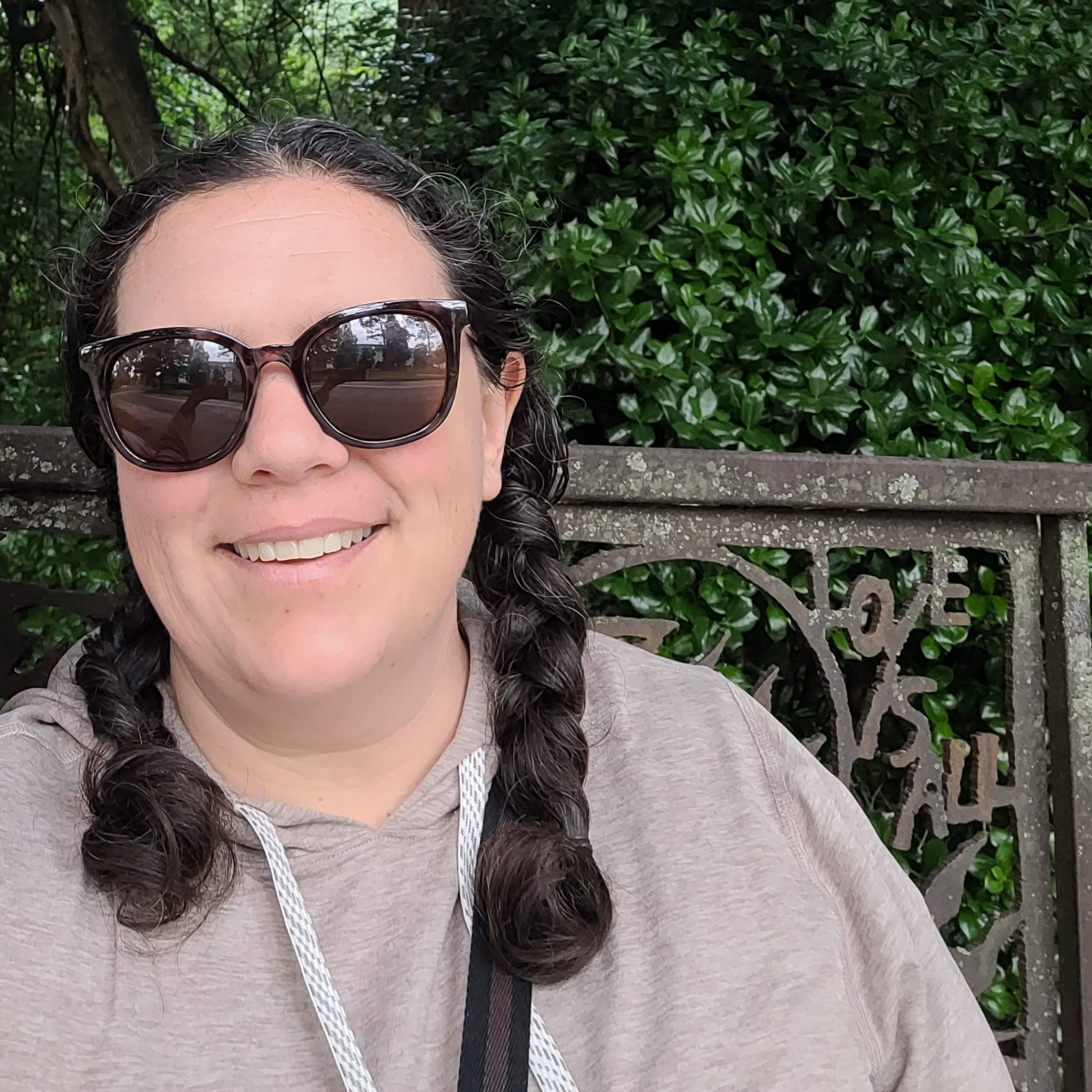 Cristal Wilson is a Ph.D. student in Family and Child Studies in the Department of Individual, Family, & Community Education in the College of Education and Human Sciences at the University of New Mexico. Her areas of research interest are the assets of pregnant and parenting unaccompanied homeless youth and the policies impacting these youth and their young children. Cristal is a native of Albuquerque, and an educator with 22 years of experience in Early Childhood Education in the state of New Mexico. Cristal believes her role as Director of the APS Title I McKinney-Vento Program is to be a positive change agent and create benevolent childhood experiences (BCEs) for students experiencing homelessness.
Cristal Wilson is a Ph.D. student in Family and Child Studies in the Department of Individual, Family, & Community Education in the College of Education and Human Sciences at the University of New Mexico. Her areas of research interest are the assets of pregnant and parenting unaccompanied homeless youth and the policies impacting these youth and their young children. Cristal is a native of Albuquerque, and an educator with 22 years of experience in Early Childhood Education in the state of New Mexico. Cristal believes her role as Director of the APS Title I McKinney-Vento Program is to be a positive change agent and create benevolent childhood experiences (BCEs) for students experiencing homelessness.
